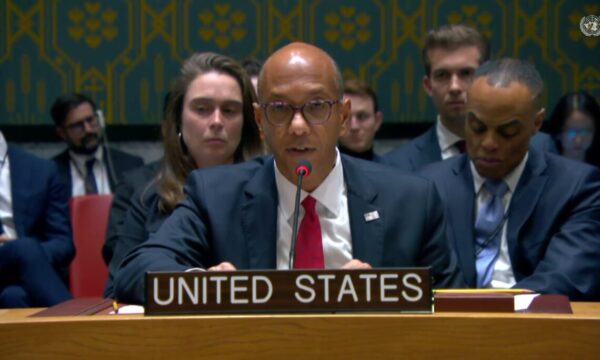Ya Libnan Editorial
In the wake of Russia’s unprovoked invasion of Ukraine and the subsequent failure of the United Nations (UN) Security Council to take decisive action, the global community is once again grappling with the question of the efficacy of the veto power wielded by the Council’s five permanent members. The recent U.S. veto of a Gaza ceasefire has reignited calls for the abolition of this controversial privilege, prompting a critical examination of its role in international diplomacy.
The UN Security Council was established with the noble aim of maintaining global peace and security. However, the power vested in the hands of five countries—the United States, Russia, China, France, and the United Kingdom—through the veto mechanism has repeatedly hindered the Council’s ability to address urgent crises effectively. The recent events in Ukraine and Gaza underscore the limitations and flaws inherent in the current structure.
The principle of veto power, intended as a tool for preventing the abuse of authority, has instead become a stumbling block, allowing vested interests to impede the will of the majority. This week’s U.S. veto of a Gaza ceasefire has left the international community stunned and outraged. The veto power, rather than serving as a check on injustice, has perpetuated it, leading many to question its relevance and legitimacy.
The call for the abolition of the veto power is not new, but recent events have intensified the urgency of this demand. The argument for reform gains strength when considering the UN General Assembly—a more democratic forum where every member state has an equal voice. It is time to explore alternatives that prioritize inclusivity and fairness over the current concentration of power.
Abolishing the veto power is a bold step, but it is one that reflects the evolving nature of global diplomacy. The veto system has repeatedly failed to provide timely and just resolutions to conflicts, leaving affected nations in the throes of violence and suffering. It is time to transition to a more democratic decision-making process that involves all nations equally.
While some may argue that the UN General Assembly lacks the swift decision-making capabilities of the Security Council, it is crucial to recognize that inclusivity and fairness are paramount. The world cannot continue to tolerate a system that grants disproportionate power to a handful of nations, often at the expense of justice and humanity.
In conclusion, the recent events surrounding the UN Security Council’s inability to address critical international issues demand a serious reconsideration of its structure. The abolition of the veto power is a crucial step towards creating a more just and equitable global governance system. It is time for the international community to come together, push for reform, and pave the way for a future where decisions are made collectively, reflecting the values of fairness, justice, and shared responsibility.


Leave a Reply
You must be logged in to post a comment.